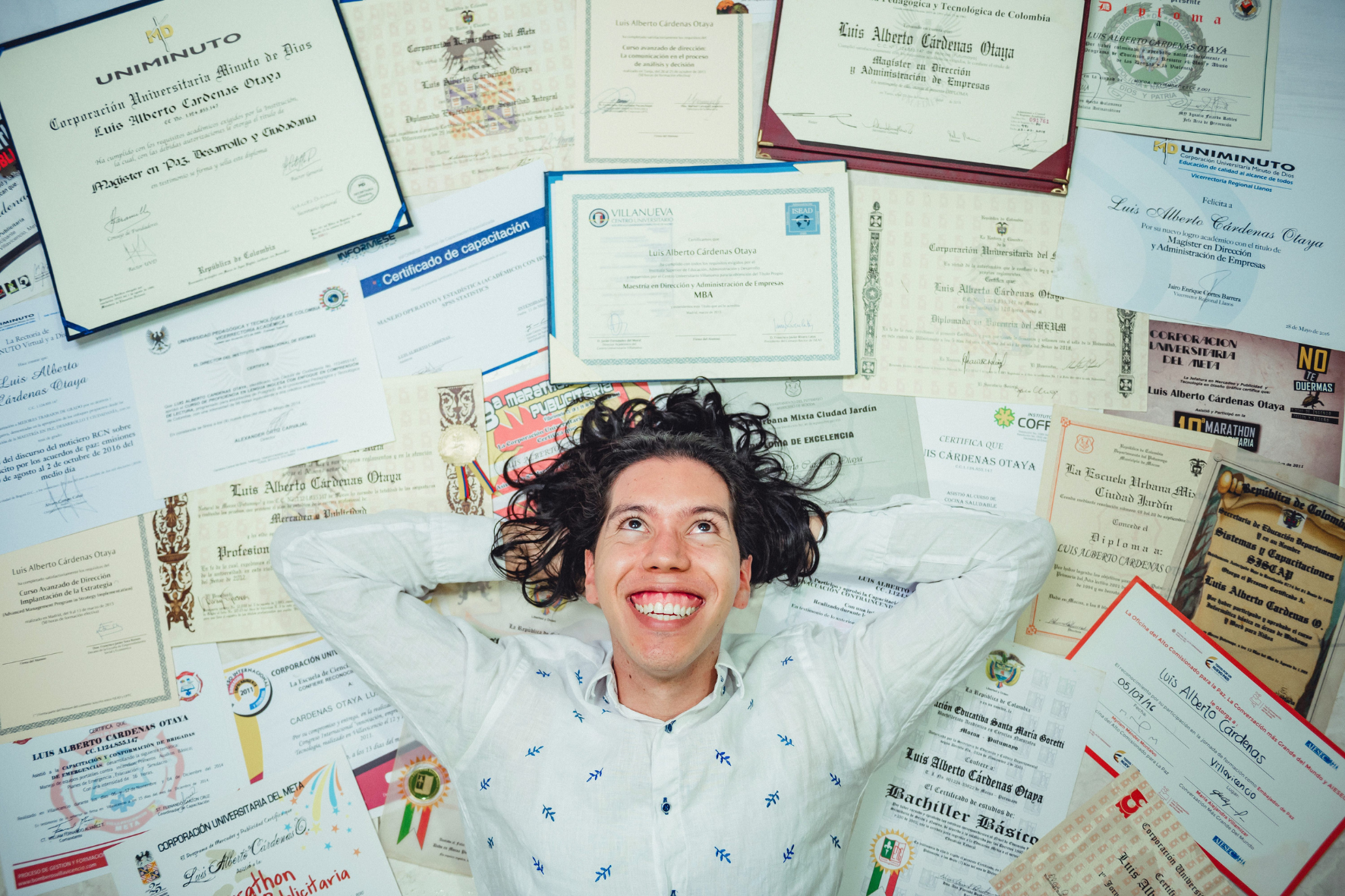Why High-Achievers in San Francisco Struggle with Anxiety (And How Therapy Can Help)
Why High-Achievers in San Francisco Struggle with Anxiety (And How Therapy Can Help)
Do you always have a long To-Do list? Are you usually going from one activity to another? Do you find yourself working long hours, and even checking emails or slack messages late at night or on weekends? Do you wish you were more present when you are spending time with friends and family, but thoughts of work keep coming to mind? Do you struggle to be the best mom or dad to your kids, or be a good friend who’s available to your friends, while also striving for promotion at work? If you’re nodding at some of these questions, you might identify as a High-Achiever.
High-Achievers are driven, motivated, energetic, and have a tendency to do many things and have many accomplishments to speak of. High-Achievers are good at doing so many things, and often thrive in the energy of being involved in a variety of aspects of life. If you’re a high-achiever, I commend you for your passion, your interests, and the drive you have to get the most out of life. But if you’re a high achiever, you can also feel burned out, overwhelmed, and tired. When high-achievers feel this way, it can feel like they’re not making progress and this can become frustrating. To make matters worse, high-achievers often feel guilty about not doing more. High-achievers are often praised for and seen by others for the things they’ve achieved. But it’s rare when others see the downside of what high-achievers go through in their pursuit of working hard and achieving more.
I can completely relate! When I received my Ph.D. degree in Clinical Psychology after 6 years of education and internships, I noticed how some people viewed me as the “Ph.D” or “the doctor.” And while it felt great to be acknowledged for this achievement, people didn’t always recognize the hard work it took to get there. That’s why I’m writing this blog post for high-achievers who go through the ups.. and the downs… of being a high-achiever.
In the San Francisco Bay Area, a city known for innovation, ambition, and success, high-achievers are amass. From tech entrepreneurs to finance professionals and medical leaders, the Bay Area attracts some of the most driven individuals in the world. But behind the fast-paced careers, six-figure salaries, and impressive LinkedIn profiles, many high-achievers are struggling with anxiety.
If you find yourself constantly on edge, unable to relax, or feeling like no amount of success is “enough”, you’re not alone. Many high-performing professionals deal with overwhelming pressure, imposter syndrome, and burnout. Especially in a city like San Francisco, the expectations can be so high, it’s easy to get stuck in this cycle.
4 Ways High-Achievers Are Prone to Anxiety
Success often comes with hidden costs. Many high-achievers unknowingly set themselves up for chronic stress and anxiety due to a combination of personality traits, work culture, and societal expectations. Here’s why:
Perfectionism: The Fear of Not Being Enough. High-achievers often hold themselves to impossibly high standards. They believe that making a mistake—or even just being “average”—is unacceptable. For example: You might spend hours reworking a presentation, even though your boss already said it’s great. You keep tweaking and perfecting it because you fear that “good enough” isn’t enough. Perfectionism leads to constant self-criticism, making it hard to feel satisfied or relaxed. Instead of celebrating success, you’re always looking for the next goal to chase.
Imposter Syndrome: The Secret Fear of Being Exposed. Despite their accomplishments, many high-achievers secretly feel like they’re not as competent as others think. They worry that one day, people will “find out” they’re not truly qualified. For example: You just got a promotion, but instead of feeling proud, you think, They must have made a mistake. I just got lucky. You work twice as hard to prove you belong, even though you already do. Imposter syndrome fuels anxiety and self-doubt, making it difficult to enjoy success.
Work-Life Imbalance: The Trap of Overworking. The work culture in San Francisco is intense—long hours, high expectations, and little room for rest. Many professionals feel guilty for taking time off, believing that working harder equals success. For example: You cancel dinner plans with friends because there’s “just one more email” to send. Before you know it, it’s 11 PM, and you’re still working. Over time, neglecting relationships, hobbies, and self-care can lead to burnout, exhaustion, and emotional numbness.
The Need for External Validation. Many high-achievers tie their self-worth to career success, promotions, or financial milestones. They crave validation from bosses, colleagues, or society—and when they don’t get it, anxiety spikes. For example: You refresh your inbox, waiting for feedback on a project. If the response isn’t immediately positive, you assume the worst. Relying on external achievements for self-worth makes it difficult to feel truly content.
How Anxiety Manifests in High-Achievers
In my work seeing high-achieving professionals in therapy, I’ve noticed that most high-achievers assume that anxiety is just part of success and a requirement for high performance. High-achievers are often familiar with living with lots of stress. But anxiety isn’t just “feeling stressed.” It shows up in different ways, including:
Racing thoughts—Constant overthinking and difficulty shutting your mind off
Trouble sleeping—Lying awake replaying conversations or worrying about work
Physical symptoms—Tension headaches, stomach pain, fatigue
Emotional exhaustion—Feeling drained, irritable, or detached
Fear of slowing down—Believing that rest means failure or falling behind
How Therapy Can Help You Find Balance
Remember when I said I commend high-achievers, and that I can relate myself? I meant it! When I work with high-achievement oriented people in therapy, my approach is not to change them. I don’t believe therapy is about giving up ambition or lowering your goals—instead, it’s about helping you achieve success in a sustainable, fulfilling way.
Here’s some examples strategies we work in therapy to help high-achievers in San Francisco break free from anxiety:
Reframing Perfectionism & Self-Criticism-A therapist can help you shift your mindset so that success isn’t tied to perfection. You’ll learn how to acknowledge progress, set realistic goals, and embrace “good enough” without guilt. Example Strategy: We’ll talk about how to implement practices of self-compassion—so you can treat yourself with the same kindness you’d offer a friend.
Managing Imposter Syndrome-Therapy helps you recognize your worth, separate facts from fears, and build confidence in your skills. Example Strategy: I’ll help you identify the imposter thoughts you’re having and show you how to challenge them with real evidence of your success.
Setting Boundaries & Creating Work-Life Balance-You’ll learn how to set limits with work, prioritize rest, and make space for joy—without guilt. Example Strategy: We’ll talk about how to set “work-free hours” where emails and Slack messages stay unread after a certain time.
Redefining Success on Your Own Terms-Therapy helps you step back and ask: What does success actually look like for me? Instead of chasing society’s version, you’ll discover what truly matters to you. Example Strategy: I’ll help you create a personal success definition that includes well-being, relationships, and fulfillment—not just career achievements.
You Don’t Have to Struggle Alone
Anxiety doesn’t have to be the price you pay for success. You can be ambitious, high-achieving, and mentally at peace at the same time. I specialize in treating all types of anxiety issues and I understand the experience that high-achievers go through. If you’re a high-achiever in San Francisco struggling with anxiety, therapy can help you regain balance, confidence, and clarity. To find out more about how I can help, read more here. If you’re ready to stop the cycle of stress, overwhelm, and anxiety, feel free to contact me for a free 15-minute consultation call to see how Anxiety Therapy San Francisco can help you.
Specialties include therapy for depression, anxiety, work stress, relationships, and life changes.


